THIS IS THE SITE OF THE LEO COMPUTERS SOCIETY,
CELEBRATING THE WORLD'S FIRST BUSINESS COMPUTER.
CELEBRATING THE WORLD'S FIRST BUSINESS COMPUTER.



ABOUT US
It was, surprisingly, a British catering firm, J. Lyons and Co - famous for their teashops, Swiss rolls and ice cream which pioneered the development of computing for commercial applications. As the Guinness Book of Records ratifies, Lyons Electronic Office (LEO) was the first business computer in the world
In 1951 the LEO I computer was operational and ran
the world's first regular routine office computer job.
the world's first regular routine office computer job.
The LEO Computers Society (which has charitable status) started life as a reunion society for people who worked on these remarkable machines. Its principal mission now is to ensure that LEO's heritage is preserved, protected and - importantly - promoted to wider audiences.
In 2018, The Society formed a partnership with the Centre for Computing History in Cambridge and together we gained important funding from the National Lottery Heritage Fund. We are working on a joint project called 'Swiss Rolls, Tea and the Electronic Office: A History of LEO, the First Business Computer.' So far, we have gathered together a large amount of LEO memorabilia - much of it from generous members. Our partners in Cambridge have archived this material and are working on digitising it.
Our comprehensive catalogue of all material related to LEO - LEOpedia - is also being incorporated into the project. We aim to establish a single window on to all LEO collections wherever they are - our archive includes artefacts, written and oral memoirs, documents, engineering drawings - in fact, anything LEO-related. We are also planning exciting new ways to tell the LEO story - for example, by creating a virtual reality (VR) version of LEO I.
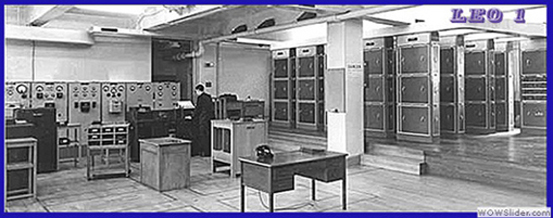
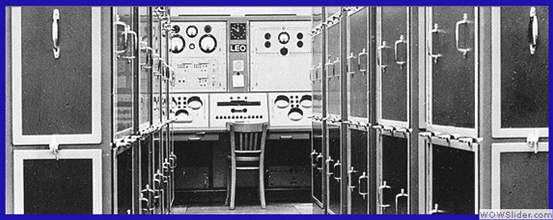
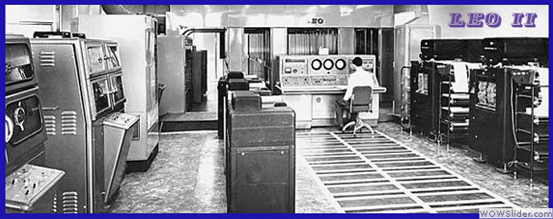
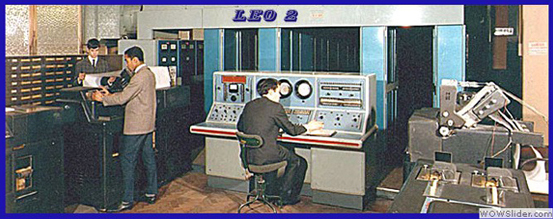
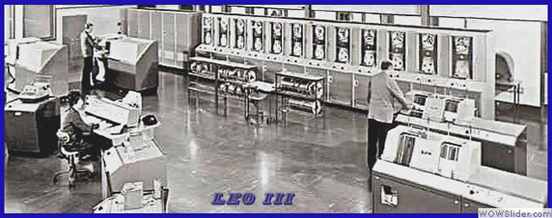
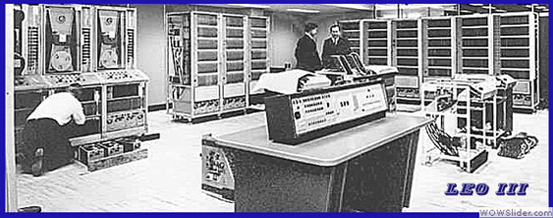
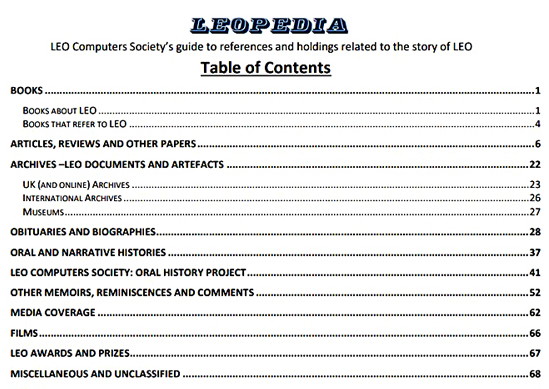


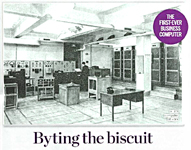
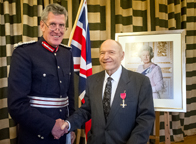
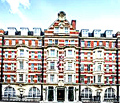
 An information board has been added to the LEO plaque, sited in Lyons Walk, (see News Item below, with a couple of added pics.) Or click
An information board has been added to the LEO plaque, sited in Lyons Walk, (see News Item below, with a couple of added pics.) Or click 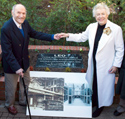 A plaque to commemorate LEO, the World's First Business Computer, was unveiled by Dame Stephanie Shirley on 29th November 2016. Information and pictures
A plaque to commemorate LEO, the World's First Business Computer, was unveiled by Dame Stephanie Shirley on 29th November 2016. Information and pictures